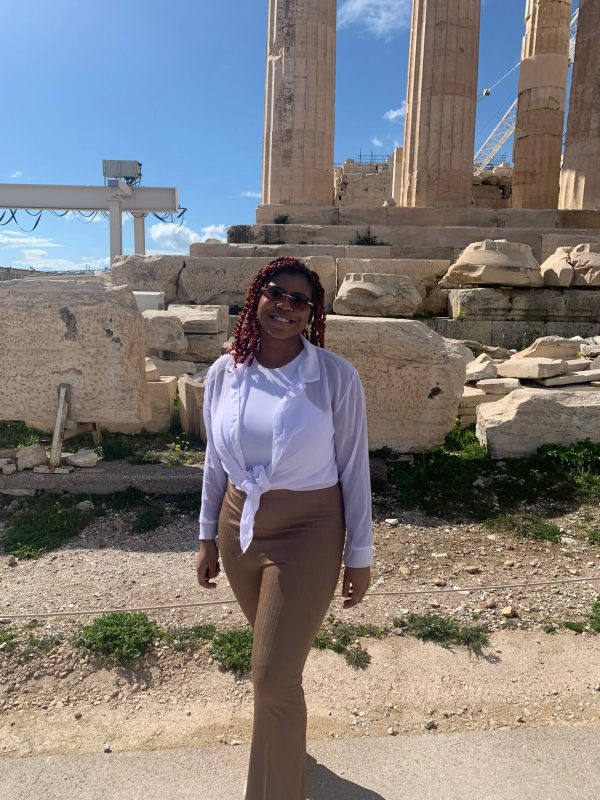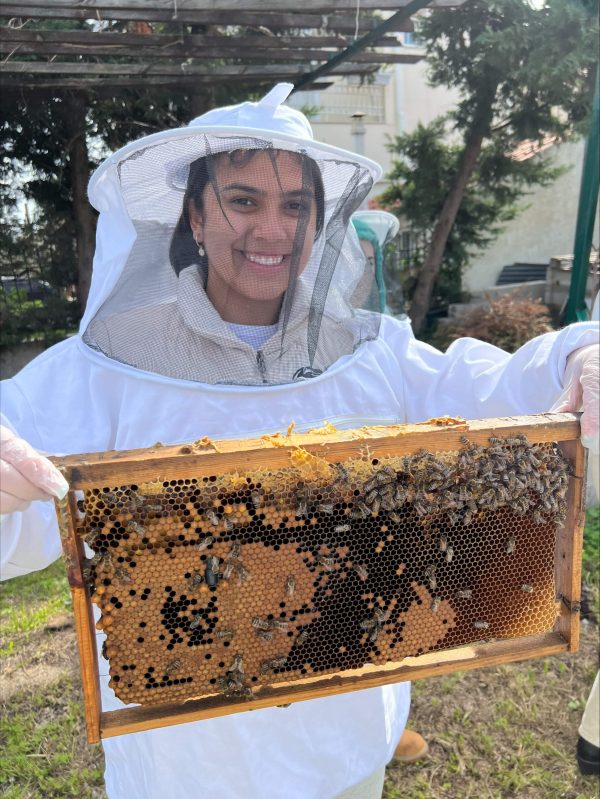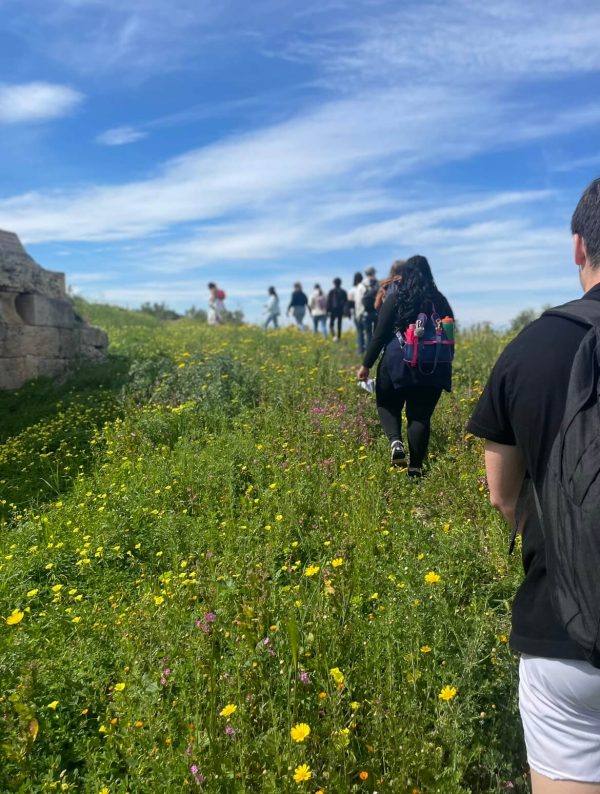CAMS 15 is a 3-credit general education course that explores seven ancient architectural and artistic human achievements—the Great Pyramid in Egypt, the Hanging Gardens of Babylon, the Temple of Artemis at Ephesus, the Statue of Zeus at Olympia, the Mausoleum of Halikarnassos, the Colossus of Rhodes and the Lighthouse of Alexandria—that entered classical literature as the most remarkable constructions of antiquity. The course examines these wonders in their ancient context and reception in later history as symbols of magnificence and competition. Students will also compare other “seven wonders of the world” lists and consider what constitutes a “wonder of the world”.
CAMS 15 includes a mandatory embedded spring break education abroad component in Greece. The focus of the trip to Greece will be one of the Seven Wonders of the World: Olympia (home of the Statue of Zeus and the Olympics). Visits to additional classical and Hellenistic period sites include the Acropolis, Acropolis Museum, Delphi, Delphi Archaeological Museum, Patras, Brauron/Vravrona, Sounion, and Thorikos. Participation in the study tour is a required and integral part of CAMS 15.
Program Dates: March 1–10, 2024
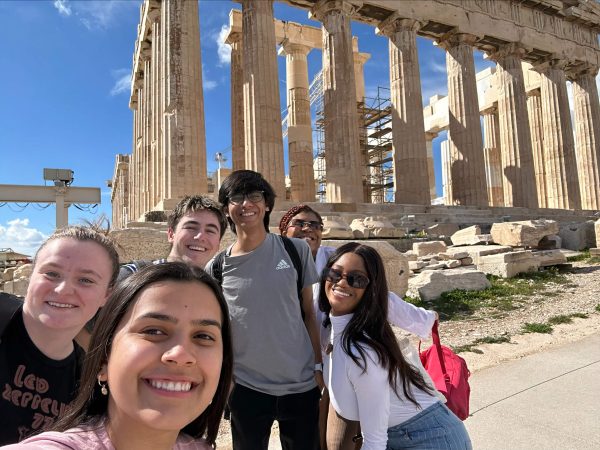
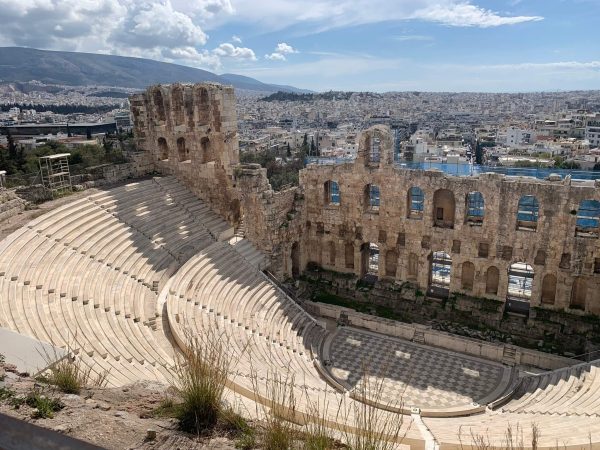
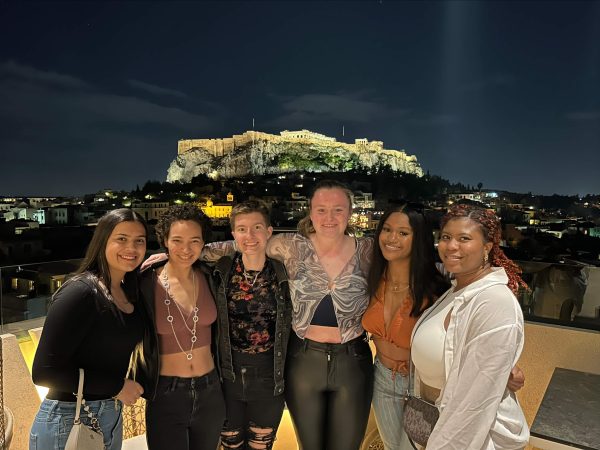
Prerequisite for CAMS 15: None
Class Attributes: Bachelor of Arts: Humanities
General Education: Humanities (GH)
GenEd Learning Objective: Effective Communication
GenEd Learning Objective: Critical and Analytical Thinking
GenEd Learning Objective: Global Learning
Professor Ann Killebrew (aek11@psu.edu)
- Program Fee: $3,150 maximum; This fee will reduce with a higher number of participants.
- Airfare: TBD – The cost for the required group flight will be shared once best ticket prices are determined.
NOTE: The embedded program fee will be billed to participants’ Penn State Office of the Bursar accounts in January, and payment will be due Monday, January 22.
- The embedded program fee includes: hotel accommodations (with breakfast); transportation to/from domestic and international airports; transportation related to program activities; fees related to program activities; welcome and farewell dinners; taxes; tips; administrative fees including guides; 24-hour emergency assistance
- The embedded program fee does NOT include: course tuition; airfare; meals (unless otherwise noted), spending money; passports and visas (if applicable)
NOTE: Please visit the Penn State Tuition website for additional information about tuition costs.
To officially commit to the program, thoroughly read and submit the Official Financial Commitment Form by Sunday, November 19.
Interested students with questions may email Ann Killebrew.
There are several official avenues for embedded program funding within the University. The primary ways are through the Liberal Arts Career Enrichment Network and Penn State Global, but students can also explore funding opportunities through their academic department, the Student Engagement Network, or Undergraduate Research and Fellowships Mentoring.
Get career ready!
Embedded programs help students to gain key skills that employers are most looking for in college graduates, according to the National Association of Colleges and Employers (NACE). Below are 1–2 major competencies students can start to develop by participating in this program.
Critical Thinking
Learn to interpret the linguistic, historical, and archaeological evidence of ancient Greece and analyze its impact in a real-world context, such as by visiting one of the Seven Wonders of the World.
Leadership
Learn to adapt to other cultures and social customs—potentially without knowing the local language—to gain a new perspective on class content, taking the initiative to go beyond traditional methods to gain the most from your learning experience.
Want to hear more? Meet with a Liberal Arts career coach in the Career Enrichment Network to discuss your experience and identify even more ways that this program can enhance your personal and professional development!
